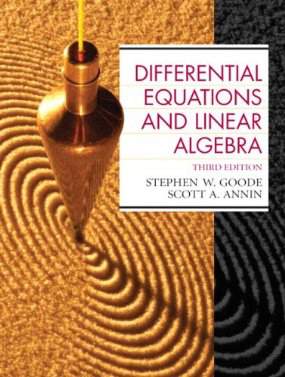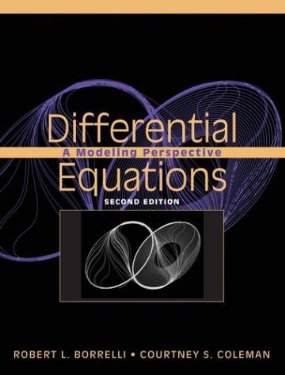Connecting...

This is a quick preview of the lesson. For full access, please Log In or Sign up.
For more information, please see full course syllabus of Differential Equations
For more information, please see full course syllabus of Differential Equations
Differential Equations Solution of the Heat Equation
Lecture Description
In this lesson, our instructor Will Murray gives an introduction on solution of the heat equation. He discusses the partial differential equation and how to solve it, as well as the procedure for the heat equation.
Bookmark & Share
Embed
Share this knowledge with your friends!
Copy & Paste this embed code into your website’s HTML
Please ensure that your website editor is in text mode when you paste the code.(In Wordpress, the mode button is on the top right corner.)
×
Since this lesson is not free, only the preview will appear on your website.
- - Allow users to view the embedded video in full-size.
Next Lecture
Previous Lecture










































 Answer Engine
Answer Engine






1 answer
Mon May 28, 2018 11:03 AM
Post by Adam Prieto on May 26, 2018
Dear Dr. Murray,
I have just finished all of your lectures in the Differential Equations course here on Educator and loved every minute of it. In addition to taking the time to explain these difficult topics in a way that students can easily understand, you did a great job of showing us how the Calculus and Linear Algebra courses we took previously really comes in handy when studying Differential Equations; the course was fantastic! I especially liked how you gave us a taste of what’s to be offered down the road in Partial Differential Equations with this last unit. Out of curiosity, have you considered making a Partial Differential Equations course here on Educator.com? I’m sure it’d be a great follow up to Ordinary Differential Equations as well as give us an excuse to come back and continue our mathematical career with you as our online lecturer. Either way, I’d personally like to thank you for helping me through this course as well helping me earn an “A” in my Differential Equations course at my university.
Respectfully,
Adam P.
1 answer
Mon Jan 11, 2016 6:27 PM
Post by Joseph Szmulewicz on January 9, 2016
Dear Dr. Murray,
I have watched both the probability and differential equations courses and they are both great! You explained the concepts very well. Question. Do you have any plans to create a new course for Educator.com in the future? If so, I would like to make a suggestion. Math for quantum mechanics. thanks
regards,
Joe
3 answers
Mon Aug 17, 2015 10:10 AM
Post by Muhammad Asad Ullah MOAVIA on August 13, 2015
Dear Professor William Murry,
Thank you so much for providing an amazing mathematics courses. I was very weak in differential equation and in probability and I have solved all my problems through your courses. I will always remember you in my prayers! Dear Professor, I have one question to you. If you provide a real analysis course through educator.com, it would be very nice of you. As I know you are connoisseur in the field of mathematics, at least you would guide me in real analysis course. As for me, I am doing my M.Phil in economic policy. I am keen to learn the game theory, so for game theory is concerned, it is all about real analysis and optimization. I am good in optimization, but very poor in real analysis. I am looking forward to hear from you soon.
Cordially,
Assad
Turkey
1 answer
Wed May 6, 2015 8:54 PM
Post by Alexander Guevara on May 4, 2015
HI Dr. Murray, do you have tutorial on Sturm Liouville?
1 answer
Sun Jan 4, 2015 7:41 PM
Post by John Nash on December 31, 2014
Happy New Year Sir,
You have been of great help for my differential equations course I have taken this semester.
1 answer
Mon Dec 15, 2014 1:19 PM
Post by suzanne El Shafei on December 12, 2014
Hi there,
I have a question I am trying to solve but my initial conditions are f(x)=100x 0<x<2
=100(4-x) 2<x<4
How would you suggest i set this up for the integration can i have an integral over 100x only?
1 answer
Tue Dec 10, 2013 11:47 PM
Post by Edward Arreguin on December 9, 2013
Can you make videos on the solution for the insulated rod and the steady state solution?
1 answer
Wed Nov 20, 2013 9:55 AM
Post by Satendra Guru on November 12, 2013
I am confussed when you arrive at the 2n+1 for odd numbers? Can you explain this better.
Thanks,